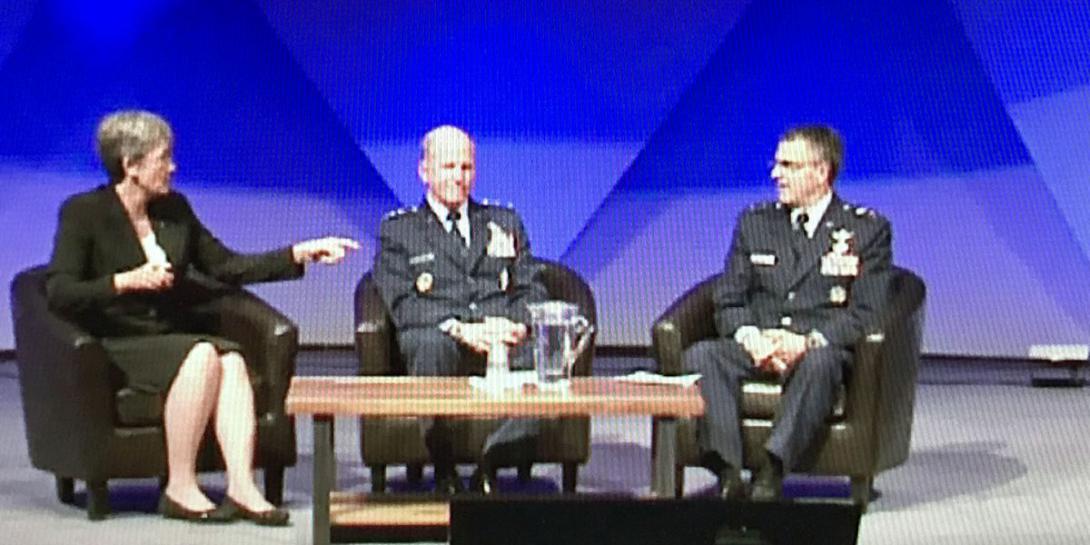U.S. Air Force to Craft Long-Term Science and Technology Plan
While the Air Force is coming up with a budget and a five-year plan in the next few weeks, it also will tackle a much larger effort, the development of a long-term research and development plan to the year 2030. The examination of research priorities will include a look at how the service spends research dollars and how it can modernize business tactics. The Air Force is partnering with the National Academies of Sciences, Engineering, and Medicine, respectively, along with several public universities for the planning effort dubbed #AF2030.
Heather Wilson, Secretary of the U.S. Air Force, and other leaders announced the effort during the January 18 U.S. Air Force Science and Technology 2030 Workshop in Washington, D.C. “In a world where more innovation is happening outside of government than within, I don’t think anyone can argue that the Air Force of today, with only 2 percent of its budget spent on research & development (R&D), is spending as much as we should on R&D,” Secretary Wilson said.
Dan Mote, president of the National Academy of Engineering, said that the effort aims to “reinvigorate” the Air Force Research Laboratory’s (AFRL's) focus on basic and applied research. The leaders are calling for insights on what the Air Force needs to focus on as far as science and technology, and how to conduct research more effectively, including its acquisition process. Maj. Gen William Cooley, USAF, commander of the AFRL, explained, “We are embarking on a nationwide effort to get ideas, and to listen. We are looking for innovative technical ideas.”
To that end, the lab will host several events over the next few months at the following universities: University of Nebraska (March 22); University of South Florida (April 26); Indiana University (May 10); University of Washington (May 22); Texas A&M University (June 27); and University of Utah (July 26)—in addition to some forthcoming “virtual” engagements and events involving industry businesses.
Interested parties can also submit ideas online to AFRL.
"We’re ready to listen to your cutting-edge science and technology ideas for basic and applied research, as well as ideas on best practices to support innovative research organizations,” according to an AFRL statement.





Comments